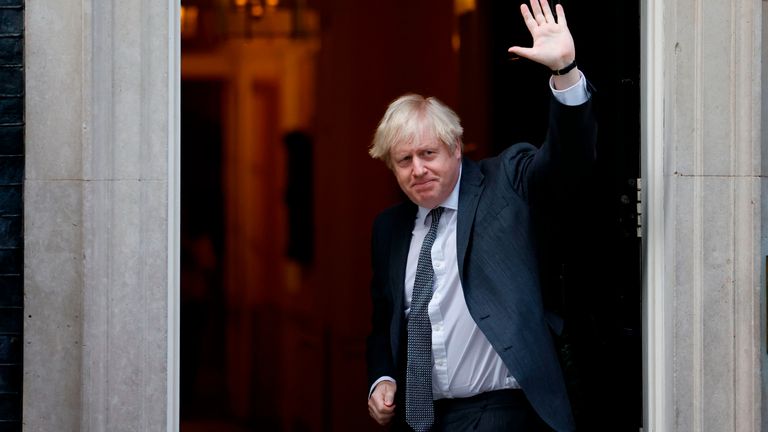At the end of 2020 Boris Johnson has finally conceded that he does indeed err on the side of optimism - over-optimism - when appearing in public, because he says he wants to be seen helping people through difficult times.
Just as well. Today it was easy to see the glass as half full, not least because of Brexit and the news of the Oxford vaccine. It'll be harder through the fog of the coming weeks to see much of his sunny uplands.
First to dwell on the successes.
To get a Brexit deal done and through Parliament is a big achievement after all the rancour and division that has passed since June 2016. To get it through the Commons with the main opposition party marching through the same division lobby is a stunning success.
Sadly the signing ceremonies, indeed the entire result (including news of just two Tory abstentions, John Redwood and Owen Paterson) got buried beneath an avalanche of other issues.
However, those who fear Brexit withdrawal pangs should not worry. As MPs queued up to tell anyone who would listen, they aren't going to let Brexit go away now.
It returns in multiple guises in the New Year: How big will the bumps in the road at ports be next week? Will we be able to export British sausages when the short-term deal on SPS - food and animal export standards - expires? Will there be an agreement on financial services in three months? Or on data transfers after four months?
What will happen to Northern Ireland supermarkets when the Northern Ireland protocol implementation period expires? What happens when GB introduces import checks in April? All of that alone in 2021, with other more substantial review dates over the subsequent five years.
Brexit will never die.
It will, however, disappear from imagination and popular consciousness for a bit, because of the epic scale of the national crisis over coronavirus in the coming weeks.
The headline of today's government statements and news conference is that over the last two week case rates have doubled, and that has necessitated more action on several fronts.
Having only been conceived in response to the new COVID strain barely two weeks ago, now 78% of the population cannot access non-essential shops because they have been put in Tier 4. All secondary schools and a sizeable number of primary schools have had their opening put back by a week.
Professor Jonathan Van Tam made clear that the crisis in infection rates does not yet take into account the additional bad news likely to flow from greater household mixing at Christmas. Brace for very grim times indeed ahead, having already beaten many of the records on case numbers and hospitalisations of the first wave.
But all of this comes at the same time ministers are desperate to champion the vaccine news, in order to give a glimmer of hope in a desperately sad situation.
But these two things will quickly start rubbing up uncomfortably against each other, not least because people will adjust behaviour in the expectation that they and the most vulnerable in society are safe because of the vaccine.
SAGE has already warned ministers of their concerns that people aren't adhering to the rules because they know the vaccine is here. But ministers seem squeamish about spelling out the risks even to those who have had both jabs.
Take one practical example. I pressed deputy chief medical officer Professor Van Tam on whether it would be safe for people with the vaccine to meet their grandchildren. He essentially said that it was too early to know whether people who had the vaccine would still be able to transmit coronavirus, since the studies have only shown that you are much less likely to suffer bad symptoms.
"Right now we don't know whether the vaccines will reduce transmission yet," he said. "Public Health England have their finger on the pulse with this one. We'll get a handle quite soon, I hope, on whether these vaccines reduce transmission. But until then I can't assure you."
If people still find their behaviour and contacts constrained after getting the vaccine, the government is likely to find itself with an almighty problem, even before possible problems with mass rollout.
Nevertheless, today of all days, Mr Johnson chose to spell out what success looks like.
In the news conference, the PM told me that if the vaccination programme rolls out in the way he hopes, "clearly a lot of non pharmaceutical interventions (NPIs) - closure of hospitality and so forth will recede into the past and we'll be able to do things very differently".
"That's the hope. There may be things we want to carry on to protect ourselves - basic disciplines - washing hands etc... Jonathan Van Tam mentioned masks... there may be things we want to continue with to protect ourselves against virus for a while to come. (But my hope) is basically to move beyond NPIs if the vaccine rollout is effective."
In short, tiers abolished by April is his suggestion and ambition.
Only four months to go until we find out if he was once more over-optimistic.







